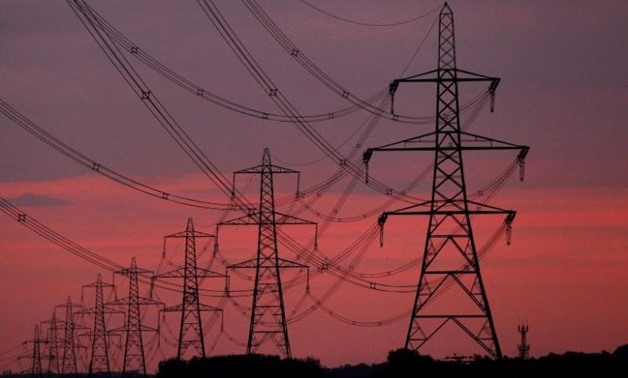
Electricity pylons - REUTERS-Phil Noble
CAIRO - 18 October 2022: Standard Chartered Bank, in cooperation with Sumitomo Mitsui Banking Corporation, announced, Tuesday, the provision of $566.4 million in Sharia-compliant financing supported by the Export Credit Agency, for the benefit of the Saudi Electricity Company to facilitate the electrical interconnection project between Saudi Arabia and Egypt.
The 14-year funding will be guaranteed by the Swedish Export Credit Agency, and financed by the Swedish Export Credit Corporation, the bank elaborated in a statement. This significant financing is in compliance with the Islamic Shariah provisions for Commodity Murabaha.
The electrical interconnection project is the first project of its kind on a large scale for high voltage DC power in the Middle East and North Africa region to connect electricity networks. The project will allow Saudi Arabia and Egypt to exchange up to 3,000 megawatts of electric power.
The interconnection project is expected to be completed by 2026, and will support the flow of energy in multiple directions, from Badr City in Egypt to Madinah Al Munawwarah and passing by Tabuk city in Saudi Arabia.
The bank was among other financial institutions that provided $3 billion as part of the five-year syndicated loan; this demonstrates Standard Chartered's commitment to supporting Saudi Arabia and Egypt and playing a major role in their economic development.
Earlier in October, October 2021, the Saudi Electricity Company and the Egyptian Electricity Transmission Company signed the awarding contracts of the electrical interconnection project between the Kingdom and Egypt.
The contracts, which were signed simultaneously between Riyadh and Cairo, included contracts with three consortiums of international and local companies to implement the connection project, which has a capacity of 3,000 megawatts, with a 500 kV HVDC technology.
They consist of the construction of three high-voltage substations, the East Madinah Station, the Tabuk Station in the Kingdom, and the Badr Station in East Cairo, linked by overhead transmission lines with a length of about 1,350 meters and marine cables in the Gulf of Aqaba with a length of 22 km, at a total cost of the project amounted to $1.8 billion.
The project will achieve a number of common benefits for the two countries, including enhancing the reliability of the national electrical networks, supporting their stability, and making optimal use of the generation capacities available in them and the timing differences in their peak electrical loads, and enabling the two countries to achieve the ambitious goals of entering renewable energy sources within the optimal mix of electricity production.
Comments
Leave a Comment